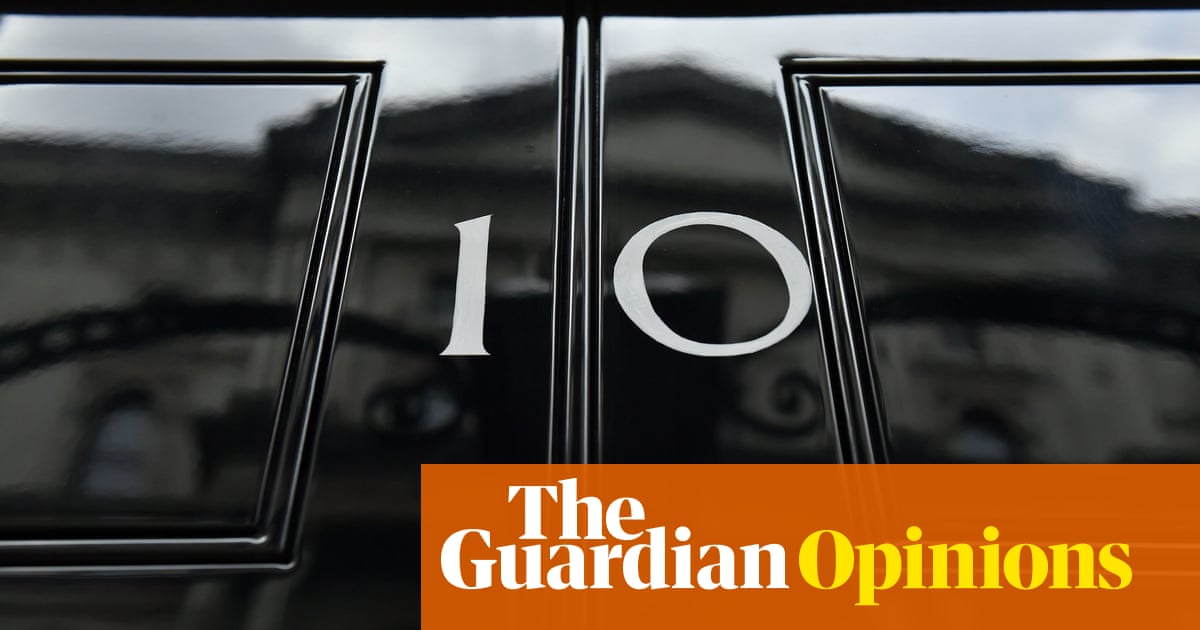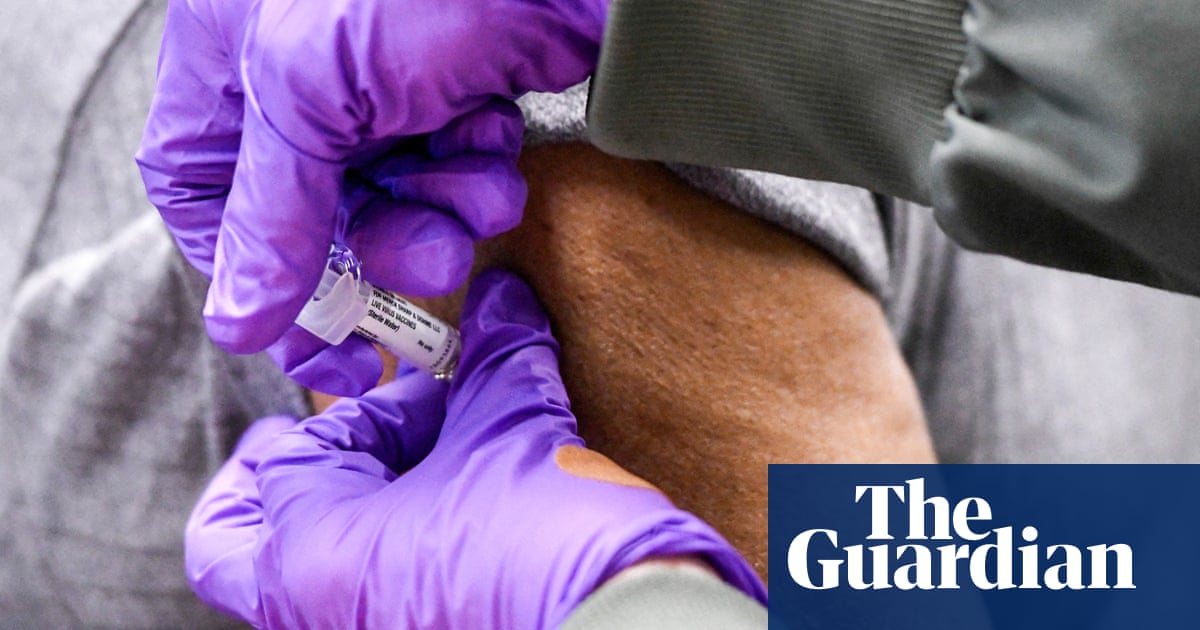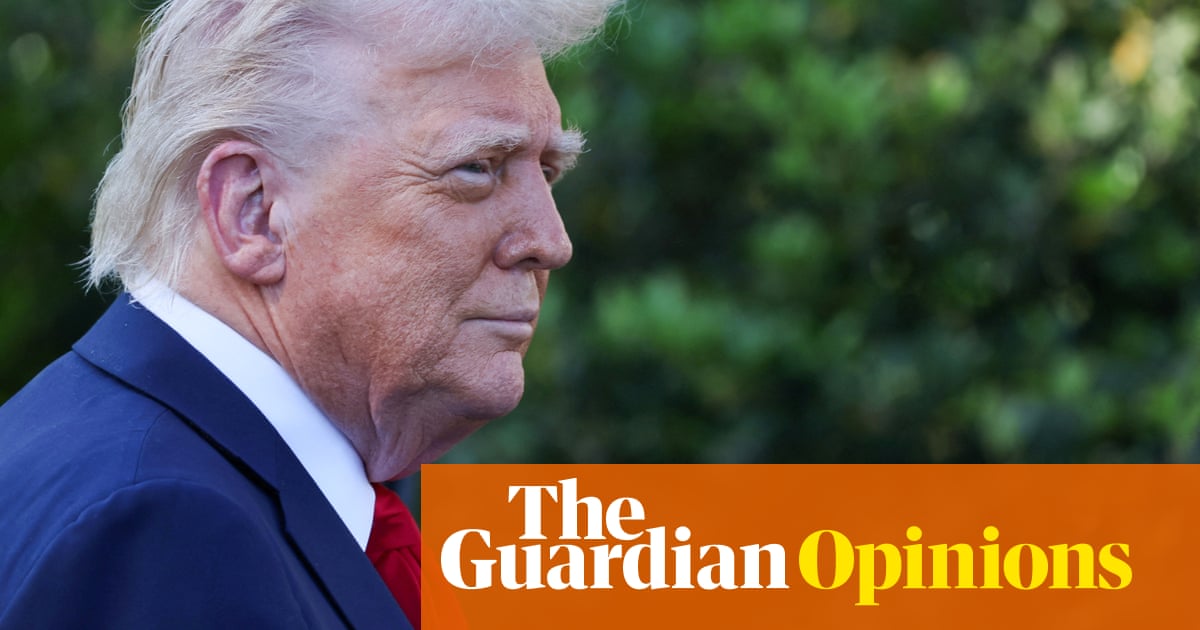Rachel Reeves says Labour was elected to “bring change to our country, provide security for working people and deliver a decade of national renewal”.
She points to the fact that the Bank of England has cut interest rates three times since the government was elected.
But the chancellor’s room for fiscal manoeuvre has narrowed since October, when she delivered Labour’s first budget in 14 years. Tax receipts have stalled amid weaker-than-expected growth, while Donald Trump’s erratic start to his second term as US president have pushed up borrowing costs.
She says the “global economy has become more uncertain” and that Labour needs to be “active” in order to secure the future and deliver prosperity.
Peter Walker, senior political correspondent: Ministers arriving for this morning’s pre-statement cabinet meeting were largely grim-faced for the cameras, but Reeves begins her speech in a more upbeat way, saying Labour had restored stability to the economy. She then goes on to warn about “uncertain” times ahead due to global events – largely meaning (though this is, as ever, unspoken) by the chaos of the second Trump administration.
OBR and fiscal rules
-
On the eve of the statement, it emerged that the Office for Budget Responsibility had told Reeves that her planned benefit cuts would only raise £3.4bn by 2029-30, not the £5bn she had predicted.
-
Reeves says she will stick to her cast-iron “fiscal rules” and blames the Liz Truss mini-budget for pushing up borrowing rates and harming “ordinary working people” two years on.
-
The budget would have been in deficit by £4.1bn without the measures she is taking today, Reeves says. She says she has restored the government’s headroom, to a surplus of £6bn in 2027-28, rising to £9.9bn in 2029-30, compared with the previous government’s £6.5bn.
-
Net financial debt will be 83.5% in 2026-27, Reeves says, falling thereafter.
PW: As is mandatory for Labour financial statements, Reeves spends time lambasting the impact of Truss’s mini-budget, and then using it as a reason to justify the tough decisions she will announce. “The British people put their trust in this Labour government because they knew that we – I – would never take risks with the public finances,” she says. This is perhaps the central political message of this statement – things are hard, but we have no choice (and it’s not our fault). Will this be enough for wavering Labour MPs? We shall see in the days and weeks ahead.
Taxes
-
The statement does not contain any further tax increases. But “it cannot be right that others are still evading what they rightly owe in tax”. Cutting-edge tech will help HMRC crack down on tax avoidance, which will raise a further £1bn, taking the total to £7.5bn.
PW: Tax rises were never on the horizon for this statement, however much the Conservatives tried to label it an “emergency budget”. Will that still the case by the real budget in autumn? That is a very different matter.
Welfare cuts
-
“The Labour party is the party” of work, Reeves says. More than 1,000 people a day are qualifying for personal independence payments (Pip), Reeves says. “It is a waste of their potential and a waste of their futures.”
-
The OBR has estimated her welfare savings package will save £4.8bn.
-
Universal credit health element will be cut for new claimants and then frozen.
-
There is £1bn for employment support to help people back into work, as well as £400m to support jobcentres.
-
Welfare spending as a share of GDP will start falling from 2026.
after newsletter promotion
PW: Reeves is unrepentant in setting out what is the most politically divisive part of her speech, calling the changes – and cuts – to social security and disability payments a necessary change which will help the most vulnerable and help more people into work. Charities, and many Labour MPs, argue vehemently that making very poor people poorer does not help them into work. This could be a real crunch point for Reeves and Keir Starmer, potentially to the point of resignations.
Spending
-
As trailed, defence spending is to rise to 2.5%, funded by international aid cuts and NHS England to be scrapped, with savings to fund patient care directly.
-
Also trailed, a plan to cut civil service costs by 15%, saving £2bn by the end of the decade.
-
£3.25bn of investment brought forward for a new “transformation fund” to bring down the cost of running government by making public services more efficient.
-
The first allocation from the fund is for AI tools to “modernise” the state, technology for the probation service and investment to support children into foster care to reduce future cost pressures.
-
There will be £3.5bn of day-to-day savings on the cost of running government by 2029-30.
-
But overall, day-to-day government spending will increase above inflation and has been “fully protected”.
-
On capital spending, Reeves already announced £100bn of investment in her autumn budget. She will increase capital spending by an average of £2bn a year, “to drive growth in our economy”.
PW: This is not austerity, OK? Reeves would like you (and her MPs) to know that, with a real-terms increase to both day to day and capital spending. While this is a politically key message, spending does seem to have been front-loaded, and later fiscal years are, as it stands, likely to see cuts. As part of this, Reeves bills big changes such as the abolition of NHS England and cuts to the civil service led by Pat McFadden, the chancellor of the Duchy of Lancaster, as vital reforms. But it remains very unclear if many jobs really will be cut, or if the much-promised use of innovations such as AI can make officialdom more efficient.
Inflation and growth forecasts
-
Inflation fell in February, Wednesday’s data showed. OBR forecasts show CPI will average 3.2% this year before falling “rapidly”, meeting the Bank of England’s 2% target from 2027 onwards.
-
The OBR has revised down growth forecasts for 2025 from 2% to 1%.
-
Reeves says she will address this through measures such as the third runway at Heathrow, planning and pension reform, and deregulation.
PW: “I am not satisfied with these numbers,” Reeves says. Nor, ministers will know, will voters when thinking about whether or not to re-elect a government which made growth its key mission. The chancellor talks up her growth plans, including the extra runway at Heathrow, which lots of her MPs believe might never happen. This is a politically tough moment for her.

.png) 1 month ago
26
1 month ago
26













































